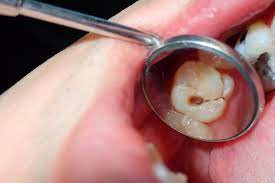views
Dental Tooth Filling Treatment
A common concern among dental patients is, “Can you be allergic to filling materials?” While Dental Tooth Filling in Dubai are generally safe, allergic reactions—though rare—can occur. Understanding what’s inside your filling and how your body might respond is key to maintaining both oral and overall health. Knowing the symptoms and alternatives can help you make informed decisions at the dentist’s office.
What Are Dental Fillings Made Of?
Dental fillings come in several materials, each with unique components. The most common types are amalgam, composite resin, gold, and ceramic. Allergies can be triggered by specific substances in these materials.
Common filling materials include:
-
Amalgam: contains mercury, silver, tin, and copper
-
Composite resin: made of plastic and finely ground glass particles
-
Gold: a mix of gold, copper, and other metals
-
Ceramic or porcelain: a metal-free, natural-looking option
While most patients tolerate these well, those with metal sensitivities or allergies may react to elements like mercury or nickel.

Signs and Symptoms of an Allergy:
Allergic reactions to filling materials often mimic other dental or oral issues, making them tricky to diagnose without proper testing. If you experience discomfort after getting a filling, it's important to consider the possibility of an allergy.
Possible allergy symptoms include:
-
Oral tissue inflammation or swelling near the filling
-
Itching or burning sensations in the mouth
-
Metallic taste or tingling
-
Skin rashes or lesions near the face or lips
-
Difficulty breathing in extreme cases (rare but serious)
Symptoms can appear within hours or may develop days later. It's essential to contact your dentist promptly if you suspect a reaction.
Who Is at Risk for Allergies?
Although dental filling allergies are rare, certain individuals may be more prone to reactions. Understanding your personal risk factors can help prevent complications.
Higher-risk groups include:
-
People with known metal allergies (e.g., nickel or mercury)
-
Patients with a history of multiple chemical sensitivities
-
Those who have previously reacted to dental restorations or jewelry
-
Individuals with autoimmune conditions or compromised immune systems
-
Children, whose developing bodies may be more sensitive
A patch test or allergy screening can be requested prior to any dental procedure if there is concern.
How Dentists Diagnose and Treat Allergies?
If you or your dentist suspects an allergic reaction to a filling material, the first step is evaluation and testing. Once the cause is confirmed, treatment and replacement can be planned accordingly.
Steps dentists may take include:
-
Reviewing your medical and allergy history
-
Visually inspecting the affected area for signs of irritation
-
Removing the suspected material for testing
-
Coordinating with allergists for patch or blood testing
-
Replacing the filling with a hypoallergenic alternative
Early diagnosis can prevent further discomfort and damage, and switching to a more suitable material usually resolves the issue.
Alternative Filling Options for Sensitive Patients:
If you're allergic or sensitive to a common Dental Tooth Filling Treatment material, you’re not out of options. Modern dentistry offers several alternatives that are both effective and biocompatible.
Allergy-friendly filling alternatives include:
-
Composite resin: metal-free and customizable to match tooth color
-
Ceramic/porcelain: durable and aesthetically pleasing with no metal
-
Glass ionomer: releases fluoride and is often well tolerated
-
Gold (for those not allergic): long-lasting but costly
-
Bio-compatible options: newer materials designed specifically for patients with sensitivities
Your dentist can help choose the safest and most appropriate option based on your allergy history and oral health needs.
Final Thoughts on Dental Filling Allergies:
So, can you be allergic to filling materials? Yes, though it's uncommon. Recognizing the signs early and consulting your dentist can help you avoid long-term discomfort or complications. If you have known allergies or sensitivities, always inform your dental provider beforehand. With the variety of modern, hypoallergenic options available today, you can still receive effective, safe, and comfortable dental care.



Comments
0 comment